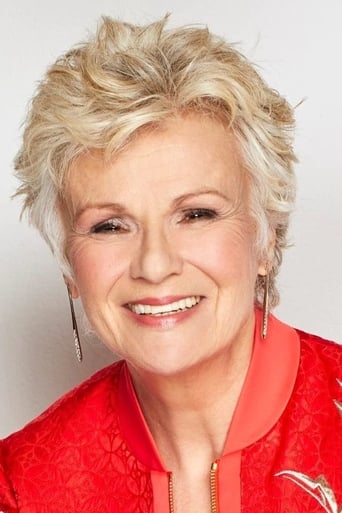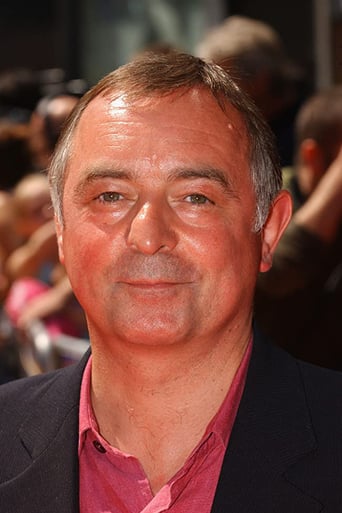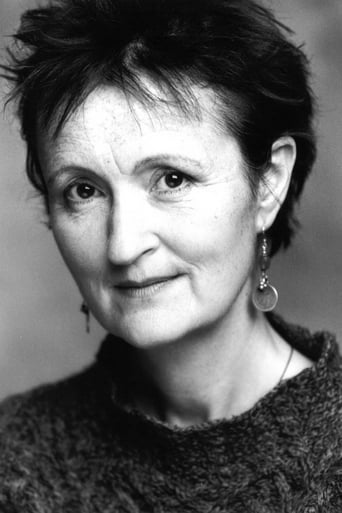Pluskylang
Great Film overall
Chirphymium
It's entirely possible that sending the audience out feeling lousy was intentional
Brainsbell
The story-telling is good with flashbacks.The film is both funny and heartbreaking. You smile in a scene and get a soulcrushing revelation in the next.
Lachlan Coulson
This is a gorgeous movie made by a gorgeous spirit.
Aziraphale615
"Filth" just happen to come on after another show - I didn't intend to watch it, but the opening song contrasting with the prim-looking lady on the bicycle so intrigued me that I ended up watching, and I'm glad I did.This is a story about Mary Whitehouse, a mother, wife and school teacher, who is outraged by the Director General of the BBC's (Sir Hugh Carleton Greene)new programming. It's the beginning of the Age of Aquarius, and the "new morality," is making its way onto TV during teatime, and Mary Whitehouse will have none of it.This is a very successful television movie in that every main character was three-dimensional. Mary starts out as a sympathetic character who eventually turns into a Master Censor as she sends letters to the beleaguered Sir Hugh complaining about two unkind characters in a children's television program. Sir Hugh also takes a turn, as he starts out an arrogant elitist who won't even meet with Mary (a "nutter") to a defender of free speech who simply can't withstand her repeated assaults.Beautifully told, acted and cleverly directed, "Filth" is well worth a watch.
Enoch Sneed
This is a very well-made, well-acted film which gives an enjoyable introduction to the Mary Whitehouse phenomenon. While showing her point of view it also manages to satirise her blinkered self-righteousness. Her pretty little English village, nestling in green pastures, is home to at least one wife-beater and a gay teenage couple; Mrs W is so concerned with the evils of television she fails to see the real world around her, possibly a comment on what TV does to us all.I have to admit that after over thirty years of being told what I should and should not see on TV and films (she started a Rambo scare in the 80's, the world would be filled with young men programmed to become indiscriminate killers after watching Sly Stallone) I was actually relieved when the woman finally left us in 2001. For me, she epitomised all I detest about petty-minded interference in other people's lives. Her main target - the BBC - is funded by *all* tax-payers and licence holders, it does not exist to serve the favoured few who know what is best for everyone else.Note also the argument these people always use: the effect on other people, never themselves; they are right-thinking and incorruptible but the rest of us are depraved children who cannot be trusted to be exposed to adult issues and behaviour; freedom of expression must be reserved for enlightened members of society.In the event Whitehouse had no influence at all on the development of popular culture in Britain. All she did was stoke a debate which could be trotted out every so often and give her some media exposure (Julie Walters gets her sweet condescending smile off to a T). On the evidence of this film, all she achieved was the destruction of a dynamic and creative head of the BBC who, for all his faults, had what Whitehouse totally lacked - a zest for life - whether it took the form of a game of cricket or a pretty secretary.
Philby-3
This account of the transformation of an ordinary suburban mum and art teacher into a controversial national figure is a lot better than it might have been. Julie Walters as Mary captures her ordinariness and her determination. She is much helped by Alun Armstrong's subtle performance as Mary's supportive if sometime baffled husband Ernest. Hugh Bonneville though at times rather Basil Fawlty-ish as the progressive but arrogant BBC director-general Hugh Greene provides an admirable foil (they never actually meet).Mary Whitehouse started her campaign to clean up television (originally unfortunately named "Clean Up National Television") after seeing a rather dull discussion program on pre-marital sex broadcast by the BBC in the early evening. Despite widespread opposition she developed a taste for being in the public eye, and was an active promoter of TV censorship for the next 30 years. The film credits her with forcing Greene's resignation, though others claim the real issue was Greene's failure to get along with Lord Hill, the oleaginous BBC chairman after 1967. Certainly Greene's philosophy on broadcasting was completely opposed to Mary's, and it has to be said that it was partly due to her that the BBC became less adventurous in the face of her attacks, some of which were downright silly, the attacks on "Dr Who" and the Beatles's lyrics for example. With all respect to her son Richard, who has a review on this page, she may have been serious and sincere, but she represented and aroused the forces of bigotry, ignorance and prejudice. The worst that can be said of Greene is that he did not handle her very well. Later directors-general, including his immediate successor Charles Curran were better at it. Even so she had a chilling effect on British television.This program goes fairly easy on Mary and does not fail to point out that Greene and other opponents often over-reacted. She had imitators elsewhere, Patricia Bartlett in New Zealand and Fred Nile in Australia for example, and of course the US is full of anti-smut crusaders. Unlike the US, Britain's media is rather centralized – the BBC had a monopoly in TV until 1956 and there was a duopoly with ITV until the 1980s – and this gave someone like Mary unwonted influence. The atmosphere of the sixties is wonderfully re-created and the BBC has to be congratulated for its even-handed telling of a story very painful to some broadcasters.
bob the moo
Mary Whitehouse is a Midlands housewife with a perfectly respectable family and village life. Whenever she hears the girls at school talking about premarital sex following a discussion programme on the subject on the BBC it turns out to be only one of many impacts that she perceives the BBC's output to be having on the morality and good fibre of British society. As a result of several letters, Whitehouse forms a small group to challenge the filth flooding into the homes of millions of families on a nightly basis and quickly finds her campaign getting national attention and becoming a thorn in the side of the more progressive Sir Hugh Greene, Director General of the BBC.I'm no fan of Mary Whitehouse nor of censorship. Neither do I believe that the decline of standards in society are entirely down to the depiction thereof in the media. However this is not the same as just saying that anyone can broadcast whatever they want without any sort of checks, balances or controls in place. Many people will share these views and agree that, while adults should be treated as adults, children should be protected and unsecured flows of media cannot contain the same content as media streams that are filtered as to audience (ie ratings, timings etc). Filth also thinks this I believe and it structures its telling very well. Whitehouse is not painted as a crazy old woman at first but rather a perfectly reasonable person concerned by what she sees on television and the effect it appears to be having directly on teenagers but gradually she is revealed to be just as frustrated with changes in society and that perhaps the BBC is just a focal point for her frustrations.The script does this really well and the delivery is gradual so that it is clear without being obvious. I did worry that this would just be a 90 minute kicking of Whitehouse but it did do her justice because it showed the good elements of her as well as the bad (of which it must be said there are more). Julie Walters didn't totally convince me in the title role but this was because she was just a little too much like Mrs Merton for me. However her performance does back up the gradual nature of the script again where it could have been easy to play her as simply a batty old lady stuck in the past and nothing more. I thought Armstrong did well alongside her while Bonneville is light and fun in his BBC role.Filth may have a terrible title card (a bike going over a dog turd) but as a film it is actually very good. The tone is light but not to the point of easy mockery; the script allows for Whitehouse to be shown in a fair light – thus good and bad are on display – while the performances are mostly good and fitting the film. You my not have agreed with her or you may lament her loss, but either way Filth is a fair and entertaining film that is a job well done.






